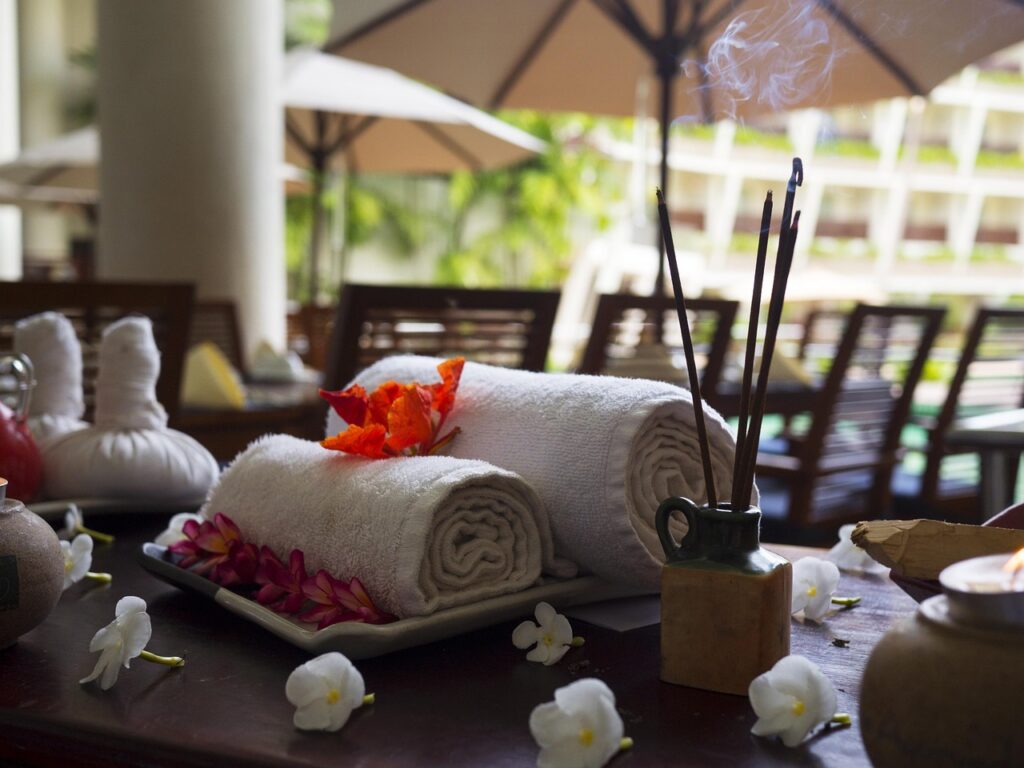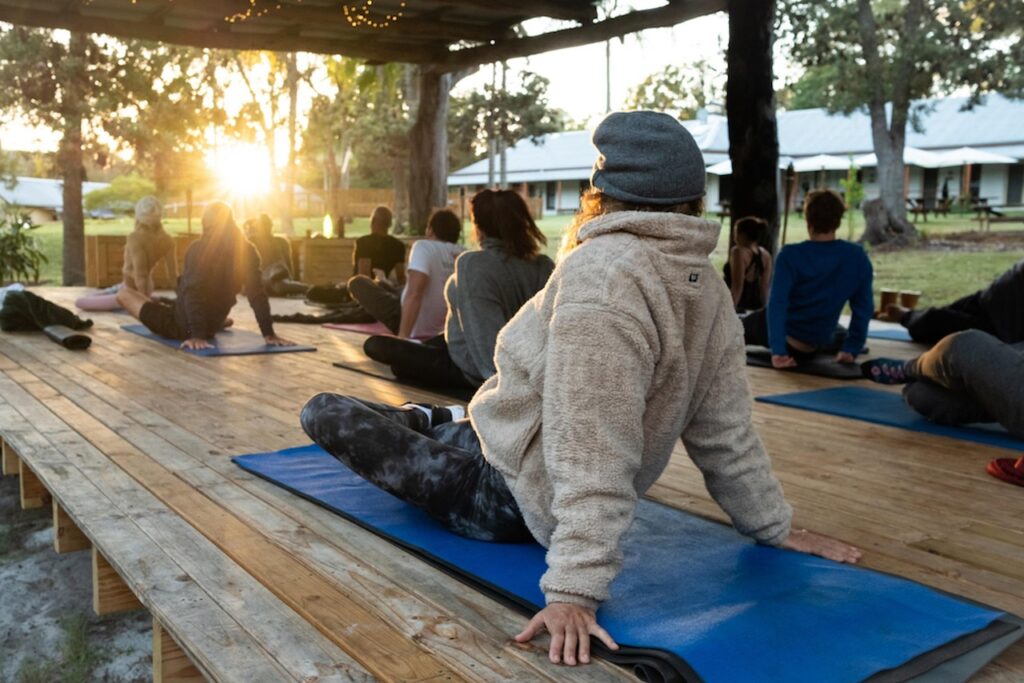Life can wear you down quietly. You might catch yourself feeling tired no matter how much you sleep, irritable over small things, or emotionally flat in situations that used to bring joy. In those moments, you may ask: Do I just need a weekend off—or something more?
This guide will help you answer the question, “Do I need a retreat or just a break?”, by exploring the differences, signs to watch for, and how to choose what your body and mind truly need.
🧭 Break vs. Retreat: What’s the Difference?
At first glance, a retreat and a break might sound similar. Both involve stepping away from everyday stress. But in reality, the difference is both structural and emotional.
| Taking a Break | Going on a Retreat |
|---|---|
| Informal and unstructured | Planned and purpose-driven |
| Often still in your usual environment | Physically changes your surroundings |
| Rest-focused | Restoration + transformation-focused |
| May include screen time and errands | Often includes digital detox and solitude |
| You’re left to “figure it out” | Guided support and healing practices |
A break is about rest. A retreat is about reset.
🧘 Signs You May Just Need a Break
You may just need a short break if:
- You’re mentally tired but still emotionally stable
- You feel overworked but not overwhelmed
- You want a weekend off from social or work obligations
- You need some “me time” but not deep healing
- Your stress is manageable and caused by short-term issues
A staycation, tech-free weekend, or nature day trip may be all you need to recharge and realign.
Try this first:
Unplug for 48 hours, avoid social media, prep nourishing meals, and spend time in nature. If you bounce back with energy and clarity — you probably just needed a break.
🌿 When a Retreat Is What You Really Need
Sometimes, however, fatigue runs deeper. If you’ve been carrying emotional or physical strain for a while, a quick break won’t reach the root of it.
🚨 Signs You Might Need a Retreat:
- You feel emotionally numb, disconnected, or “on autopilot”
- You’re exhausted even after taking time off
- Your stress has started to affect your sleep, relationships, or health
- You’ve lost interest in things you used to enjoy
- You keep saying “I’ll be okay once this busy season ends” — but it never ends
- You’re dealing with grief, heartbreak, burnout, or trauma
- You crave solitude, quiet, and intentional healing
In these cases, what you need is more than rest. You need restoration — the kind of deep recalibration a wellness retreat is designed to offer.
🔍 Ask Yourself These 5 Questions
To figure out whether it’s time for a retreat, try answering these honestly:
- Am I just tired, or do I feel disconnected from myself?
- Have I already tried taking time off—and still feel depleted?
- What do I want to feel at the end of this break: rested or transformed?
- Have I been stuck in unhealthy patterns I can’t break in my current environment?
- What kind of healing or support have I been avoiding because I’m too “busy”?
The more your answers lean toward transformation, support, or healing — the more a retreat may be your next best step.
🧬 The Psychology of Retreats
Why does a retreat help when a break doesn’t?
Because retreats offer space, structure, and support — three things your usual environment often lacks.
According to a 2021 study in Global Advances in Health and Medicine, participants in a 5-day wellness retreat reported significantly lower levels of stress and anxiety, and higher levels of life satisfaction and self-compassion, even 30 days post-retreat.
Retreats work because they remove you from daily stressors, offer tools for reflection and healing, and place you in settings (like forests, beaches, or mountains) proven to restore cognitive function and emotional balance.
🗺️ Real-World Scenarios
- “I’m mentally drained but still excited for life” → Try a quiet weekend or wellness day.
- “I feel lost, stuck, or out of sync with myself” → A retreat might help you reconnect.
- “I want to feel grounded, not just relaxed” → Go where structure and support exist.
🌐 Common Retreat Goals That Go Beyond “Rest”
When you choose a retreat, you’re choosing intentional change. Retreats often help with:
- Releasing emotional overwhelm or burnout
- Building a new wellness routine
- Recovering from heartbreak or life transitions
- Improving sleep and hormonal balance
- Learning stress-reduction techniques (e.g., breathwork, yoga, mindfulness)
- Gaining clarity on what truly matters
And you’re doing it with guidance — not through trial and error.
🧳 What Happens at a Wellness Retreat?
Most retreats offer a gentle blend of:
- Daily yoga or meditation
- Healthy meals, often organic and plant-based
- Nature immersion or light outdoor activity
- Workshops on stress, healing, or creativity
- Silence or digital detox blocks
- Optional therapies: massage, reiki, breathwork, sound healing
You’re supported, but never pressured. The structure is there to hold you — not box you in.
💬 Final Thoughts
If you’re asking, Do I need a retreat or just a break? — that question alone is your signal. You’re listening to something important inside you. Don’t ignore it.
A break might rest your body. But a retreat has the power to reconnect you to yourself. And that’s where real healing begins.
👉 Ready to Reset?
Explore peaceful, drive-to wellness retreats near you. Whether you're seeking silence, movement, or emotional renewal, there's a sanctuary waiting for you.







